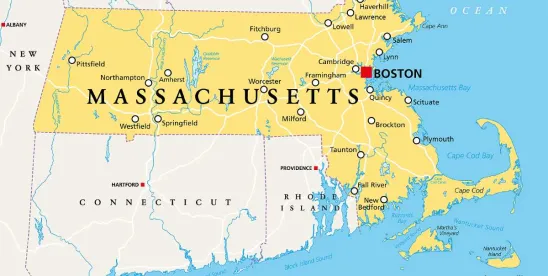The National Oceanic and Atmospheric Administration is pressing ahead with its plan to ban Fast Ferries between the Massachusetts mainland and Martha's Vineyard and Nantucket between November 1st and May 30. I first wrote about this proposed regulation in the fall of 2022.
Nantucket Current reported this week on the many negative consequences of this rule for Island residents, and mainlanders who currently work on the Islands. I hope NOAA management, others in the Biden Administration, and our elected officials here in Massachusetts have read that report.
The bottom line is that this Federal regulation which NOAA hopes will help protect the most critically endangered North Atlantic Right Whales will absolutely adversely impact Island residents in many ways, including those reported by the Current.
Even if one balances the risks to Right Whales and the risks to humans living and working on the Islands exactly the same way that NOAA does, there are two things that seem like they should be uncontroversial.
First, we should know what the actual positive effects of the proposed rule will be so that those positive effects can be balanced against the certain negative effects of the rule. According to the Current, a Right Whale hasn't been seen between the Cape and the Islands for decades. Whether or not this is true should be verifiable based on the considerable efforts to track Right Whales for the past several years. I would hope that everyone agrees that if there is no evidence of Right Whales in Nantucket Sound, the high human costs of prohibiting high speed boat travel between the Cape and the Islands should be avoided.
Second, we should be sure that the proposed rule is the best way to protect the Right Whales. As I wrote in September of 2022, scientists are reported to have developed technologies that can accurately detect whales in real time so that they can be avoided without the negative consequences of a ban on high-speed water transportation.
Don't get me wrong - The North Atlantic Right Whales face seemingly insurmountable challenges, including those caused by unsustainable fishing methods, boat strikes, and climate change. Even if we do everything we can to save them, we might be unsuccessful. They, and the residents of Nantucket and Martha's Vineyard, and those who work there, deserve our best effort. It doesn't seem as if this November to June Fast Ferry ban is that.
“Fast and reliable ferry service is not a luxury, it’s a necessity,” said Peter Burke, executive director of the Nantucket Chamber of Commerce, said. “That’s our lifeline.”
When the National Oceanic and Atmospheric Administration (NOAA) first proposed the rule, many assumed Nantucket Sound would be exempted. The impacts were too massive and too devastating, and other areas with confirmed right whale sightings were getting exemptions. Surely, Nantucket Sound, which hasn’t had a right whale sighting in decades, would join them. So far, that hasn’t been the case.
“There were other areas where there were sightings that were exempted, like Buzzards Bay, so the logic of this really doesn't make any sense,” Select Board Chair Brooke Mohr said.
https://nantucketcurrent.com/news/what-would-nantucket-look-like-without-high-speed-fer




 />i
/>i

